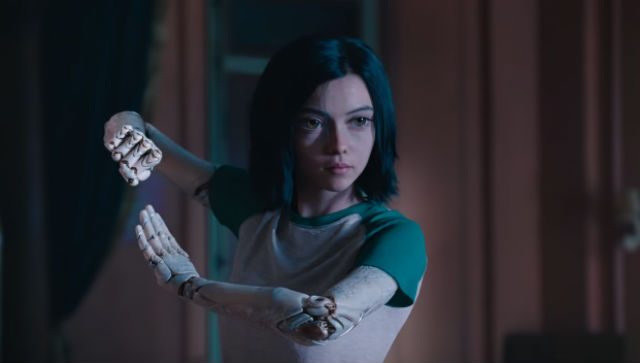SUMMARY
This is AI generated summarization, which may have errors. For context, always refer to the full article.

Robert Rodriguez’s Alita: Battle Angel is such a sweet and savage surprise.
In a market crowded with blockbusters that seem to have traded their soul for sheen and shine, Rodriguez’s take on Yukito Kishiro’s manga series is a rare gem where astounding special effects and capable storytelling seamlessly combine.
Far from perfect
The film is far from perfect.
There are spots that would have benefited from either trimming or breathing space. It is also burdened by a need to establish the cornerstones of feasible franchise, leading to a narrative that is truncated, perhaps in a fervent desire to have its audience thirsting for more. However, whatever Rodriguez has revealed about how he intends to translate Kishiro’s work as an unabashedly tender tale whose heart is grounded on the relationship between a girl with an identity crisis and a doting father figure is something worth getting excited over.
The film is so overrun by special effects to the point that the sight of a human face that isn’t attached to any form of gadgetry is so much more a wonder than any of the computer-generated gloss that the film explicitly drapes itself with. In fact, the film’s heroine Alita, played terrifically by Rosa Salazar, has a pair of eyes that inhabit a large portion of her face, making the character a heartfelt nod to the film’s manga roots. All the other characters are bizarre amalgamations of human features and junkyard scraps.
The effort at building a dystopian universe where flesh and metal fuse is just astonishing. Each corner of the film’s world, which is distinguished primarily by an urbanized melting pot resting chaotically under the shadow of a floating paradise that is exclusive to the rich and deemed worthy, is brimming with detail.
For sure, the world that Kishiro imagined his characters would thrive has some sort of basis within the inequities of the real world, but in Rodriguez’s very capable hands, that world has become this fully formed futuristic nightmare that haunts as much as it dazzles.

Novel and transgressive
The film seems to want its audience to revel at the extent of grotesqueness technology can stretch the human form with.
Alita: Battle Angel is most artfully novel and perhaps transgressive when its many action scenes conclude with stark decapitations, dismemberments and mutilations that while overtly cartoonic still leave an overwhelmingly discomforting aftertaste to the outrageous spectacle. Perhaps the most noteworthy accomplishment of Rodriguez’s film is its ingenious translation of anime-specific violence to the most Hollywood and mainstream of sensibilities.
For all the film’s brutal indulgences, it never abandons its distinctly human impulses.
The film could have been a rote succession of empty carnage and bloodshed, which would have been tolerable by an audience that has been trained to equate quality with how close cinema can replicate videogame-sourced enjoyment. Thankfully, Rodriguez values classic tropes, no matter how corny or old-fashioned. He remains to be the steadfast entertainer, the reliable filmmaker who was able to make sense out of the rampage in Desperado (1995) or the indiscriminate joy out of the juvenilia in Spy Kids (2001). Here, he clings on to loud and glaring humanity amidst the overwhelming rust and steel.
The romance is awkward. The familial undertones are gawky. Strangely, Alita: Battle Angel is better for those things that would otherwise be imperfections.
Space-age soap opera
By Alita: Battle Angel’s rousing but abbreviated end, it’s quite hard not to get hooked.
Think of the film as the pilot episode to a space-age soap opera. It thrives in boisterous sights, big moments and naked emotions. – Rappler.com

Francis Joseph Cruz litigates for a living and writes about cinema for fun. The first Filipino movie he saw in the theaters was Carlo J. Caparas’ Tirad Pass.
Since then, he’s been on a mission to find better memories with Philippine cinema.
Add a comment
How does this make you feel?
There are no comments yet. Add your comment to start the conversation.